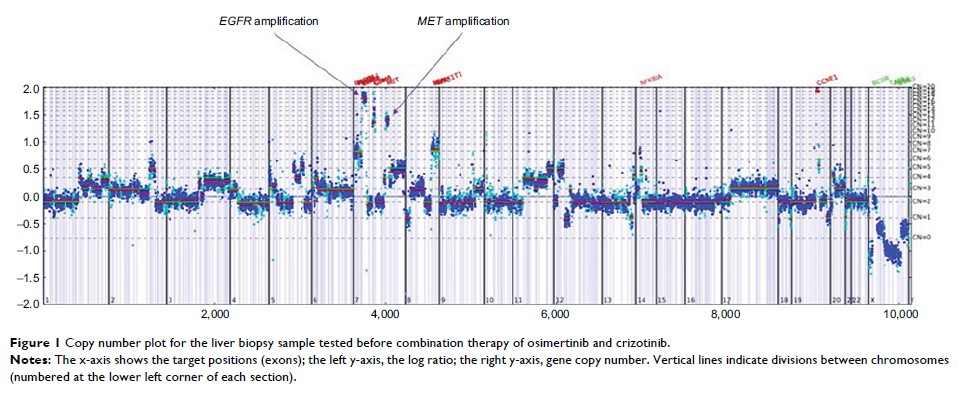9 7 8 1 6
论文已发表
注册即可获取德孚的最新动态
IF 收录期刊
- 3.3 Breast Cancer (Dove Med Press)
- 3.4 Clin Epidemiol
- 2.5 Cancer Manag Res
- 2.9 Infect Drug Resist
- 3.5 Clin Interv Aging
- 4.7 Drug Des Dev Ther
- 2.7 Int J Chronic Obstr
- 6.6 Int J Nanomed
- 2.5 Int J Women's Health
- 2.5 Neuropsych Dis Treat
- 2.7 OncoTargets Ther
- 2.0 Patient Prefer Adher
- 2.3 Ther Clin Risk Manag
- 2.5 J Pain Res
- 2.8 Diabet Metab Synd Ob
- 2.8 Psychol Res Behav Ma
- 3.0 Nat Sci Sleep
- 1.8 Pharmgenomics Pers Med
- 2.7 Risk Manag Healthc Policy
- 4.2 J Inflamm Res
- 2.1 Int J Gen Med
- 4.2 J Hepatocell Carcinoma
- 3.7 J Asthma Allergy
- 1.9 Clin Cosmet Investig Dermatol
- 2.7 J Multidiscip Healthc

Differential response to a combination of full-dose osimertinib and crizotinib in a patient with EGFR -mutant non-small cell lung cancer and emergent MET amplification
Authors Zhu VW, Schrock AB, Ali SM, Ou SI
Received 10 October 2018
Accepted for publication 10 February 2019
Published 12 March 2019 Volume 2019:10 Pages 21—26
DOI https://doi.org/10.2147/LCTT.S190403
Checked for plagiarism Yes
Review by Single-blind
Peer reviewers approved by Dr Colin Mak
Peer reviewer comments 4
Editor who approved publication: Professor Antonio Araujo
Abstract: Exploring
resistance mechanisms in patients with EGFR -mutant non-small-cell lung cancer (NSCLC) upon
disease progression on EGFR tyrosine kinase inhibitors (TKIs) has been an area
of great interest as it may lead to effective next-line treatment strategies.
Here we report a case of emergent MET amplification detected in a tumor sample from
a patient with NSCLC harboring EGFR L858R mutation after disease progression on
erlotinib. The patient subsequently had a sustained partial response to a
combination of full-dose osimertinib and crizotinib with excellent tolerance
but eventually had central nervous system (CNS) progression. Comprehensive
genomic profiling performed on the resected brain sample continued to
demonstrate MET amplification as an acquired resistance
mechanism. A review of literature shows several groups have utilized similar
combination regimens (erlotinib or osimertinib + crizotinib or cabozantinib),
albeit with various dosing to target MET alterations in patients with EGFR -mutant
NSCLC. As more actionable resistance mechanisms are identified, we envision
combination TKI therapy will be readily adopted in clinical practice. Our case
report adds to a growing body of evidence that combination osimertinib and
crizotinib should be recommended to EGFR -mutant NSCLC patients with emergent MET amplification
as acquired resistance. More importantly, as crizotinib has limited brain
penetration, developing next-generation MET inhibitors with better CNS activity
is urgently needed.
Keywords: resistance,
TKI, erlotinib, cabozantinib, CGP, gefitinib
